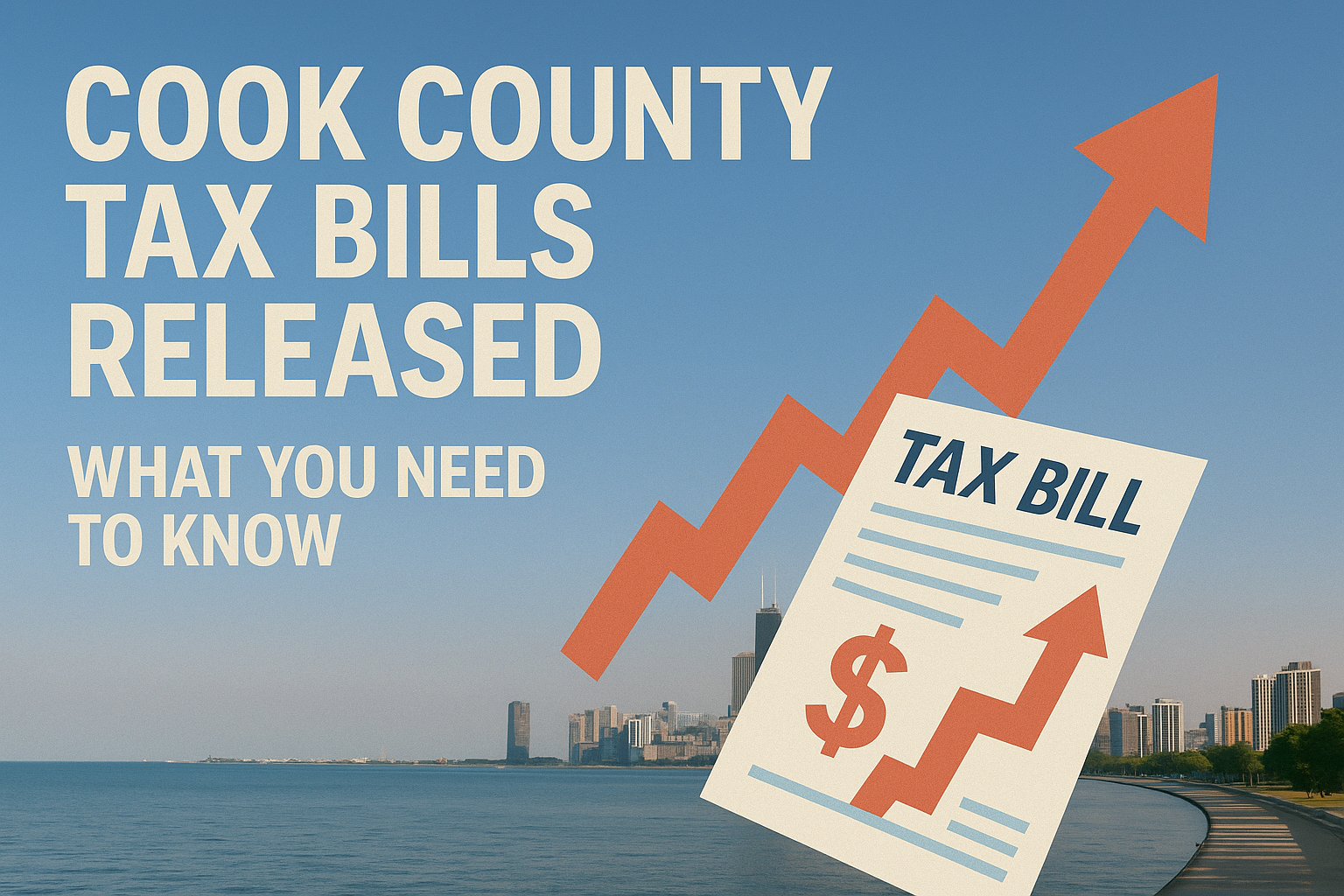What’s behind the recent surge in tax bills in Cook County, and what should you do now?
Tax bills for homeowners in Cook County have been released this week, revealing the largest jump in about 30 years. The surge is being driven by sharp drops in commercial property values, increased spending by taxing bodies, and recent assessment changes — here’s what you should understand, what it means for you, and how to respond.
What happened this week
Your new property tax bill in Cook County has officially landed in the mail (or online) for many homeowners across the city of Chicago and its neighborhoods. According to multiple reports:
The median residential bill rose roughly 16‑17% city‑wide. (ABC7 Chicago)
In some neighborhoods the jump was dramatic: in North Lawndale bills soared about 99 %, in West Garfield Park about 133 %. (ABC7 Chicago)
The reason? A big drop in commercial property tax contributions — especially downtown — meant the residential sector absorbed much more of the tax burden. (NBC Chicago)
A computer system upgrade delayed many bills, which added to the surprise when they arrived. (ABC7 Chicago)
Why the increase matters for you
If you’re a homeowner in Cook County, these tax bill changes can significantly affect your budget, refinancing plans, or even whether you decide to sell or stay. Here’s what’s going on and why it matters:
Commercial property value drop shifts the burden
As reported by the Cook County Treasurer's Office, commercial buildings in the Loop paid about $129 million less this cycle in taxes. (NBC Chicago) Because many commercial properties are vacant or under‑utilized, the tax base shrank, so the remaining properties — including your home — cover more of the cost.
Increased spending + assessment changes
Local governments have increased spending, and assessments recently changed (every three years), which means your home may no longer be undervalued compared to previous cycles. (ABC7 Chicago)
Uneven impact across neighborhoods
While the city‑wide average is up ~16‑17 %, the increase isn’t uniform. Neighborhoods with higher commercial vacancies or historic undervaluation of homes are seeing extreme jumps. For example:
Englewood: ~82% increase (~$600 average). (NBC Chicago)
West Garfield Park: ~133% increase (~$2,000 average). (ABC7 Chicago)
That means your next‑door neighbor’s increase may be very different from yours.
What you should do right now
Given that your bill is in, here are proactive steps to manage this situation:
Review your bill carefully. Confirm the assessed value, taxes, and any exemptions or credits you’re eligible for.
Compare prior bills. Look at your bill from last year, and see how much your assessed value or tax rate changed.
Understand payment options. The bill is due on Dec 15 (per the report). (ABC7 Chicago) If you can’t pay in full, check if you can set up a payment plan (interest may apply).
Ask if your assessment is accurate. If you believe your home is over‑assessed (or has declined in value due to condition or area shifts), you may be able to file an appeal or correction.
Budget for future increases. This year may represent a new baseline. With commercial contributions down and public spending elevated, you may face higher bills in future cycles unless structural changes occur.
What this means for sellers and buyers
If you’re selling:
You’ll want to highlight recent tax bills to prospective buyers. A significantly higher tax bill can affect affordability and offer negotiations. Be transparent about why the bill increased and how it may evolve.
If you’re buying:
Don’t rely on last year’s tax bill alone. The new bill reflects updated assessments and tax burden shifts. Consider asking the seller for the current year’s bill and compare it against prior years. Factor potential future increases into your budget.
Final thoughts
Your new tax bill isn’t just a number — it reflects deep‑seated shifts in Cook County’s tax base, assessment system, and public finances. Many homeowners across neighborhoods are feeling the squeeze for the first time in decades. Take time now to understand exactly what your bill says, what drove the increase, and how to adapt your budget or real‑estate strategy accordingly.
Would you like us to prepare a tax‑bill review sheet to compare your past bills, assess your payment options, and plan for future changes? Let’s set it up together.


